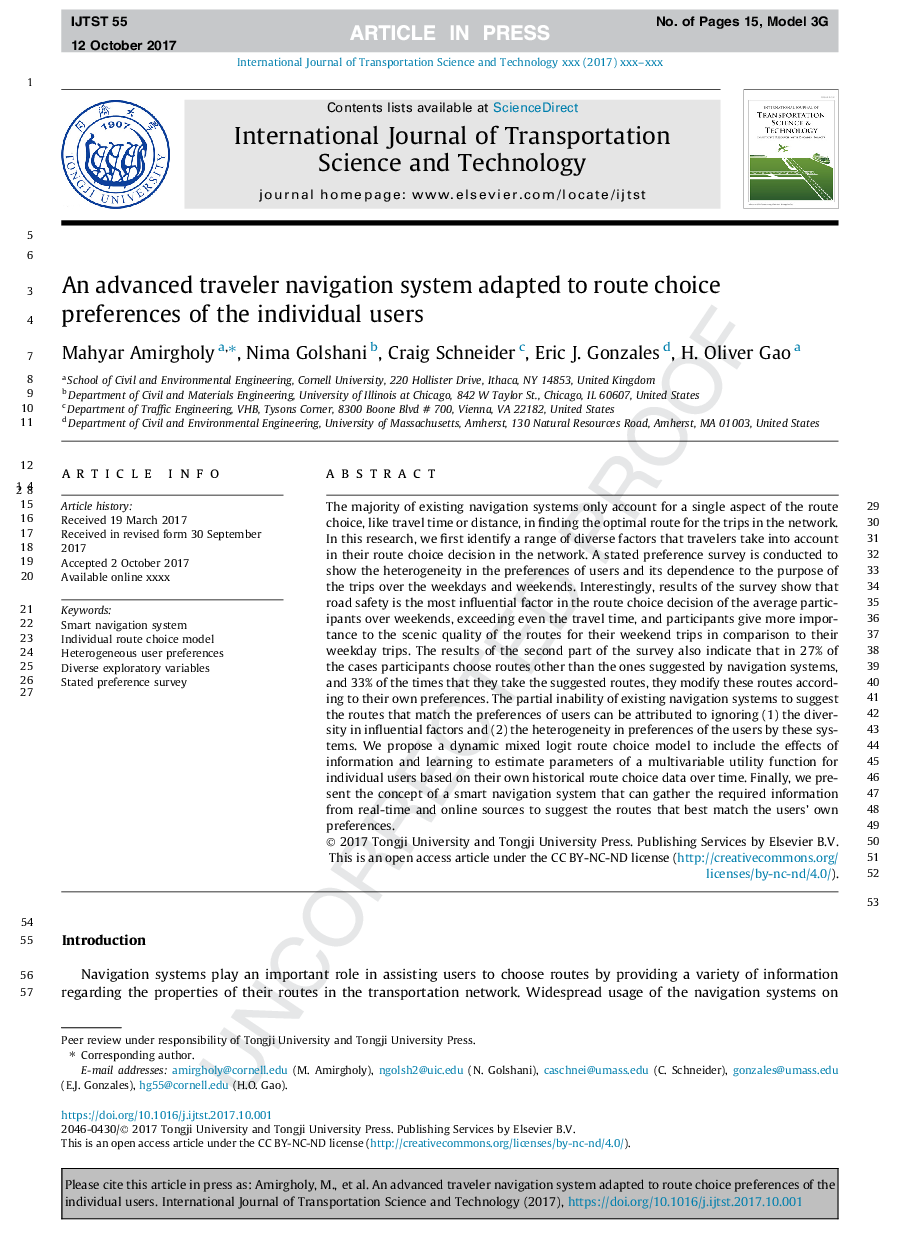| Article ID | Journal | Published Year | Pages | File Type |
|---|---|---|---|---|
| 6749630 | International Journal of Transportation Science and Technology | 2017 | 15 Pages |
Abstract
The majority of existing navigation systems only account for a single aspect of the route choice, like travel time or distance, in finding the optimal route for the trips in the network. In this research, we first identify a range of diverse factors that travelers take into account in their route choice decision in the network. A stated preference survey is conducted to show the heterogeneity in the preferences of users and its dependence to the purpose of the trips over the weekdays and weekends. Interestingly, results of the survey show that road safety is the most influential factor in the route choice decision of the average participants over weekends, exceeding even the travel time, and participants give more importance to the scenic quality of the routes for their weekend trips in comparison to their weekday trips. The results of the second part of the survey also indicate that in 27% of the cases participants choose routes other than the ones suggested by navigation systems, and 33% of the times that they take the suggested routes, they modify these routes according to their own preferences. The partial inability of existing navigation systems to suggest the routes that match the preferences of users can be attributed to ignoring (1) the diversity in influential factors and (2) the heterogeneity in preferences of the users by these systems. We propose a dynamic mixed logit route choice model to include the effects of information and learning to estimate parameters of a multivariable utility function for individual users based on their own historical route choice data over time. Finally, we present the concept of a smart navigation system that can gather the required information from real-time and online sources to suggest the routes that best match the users' own preferences.
Keywords
Related Topics
Physical Sciences and Engineering
Engineering
Civil and Structural Engineering
Authors
Mahyar Amirgholy, Nima Golshani, Craig Schneider, Eric J. Gonzales, H. Oliver Gao,
